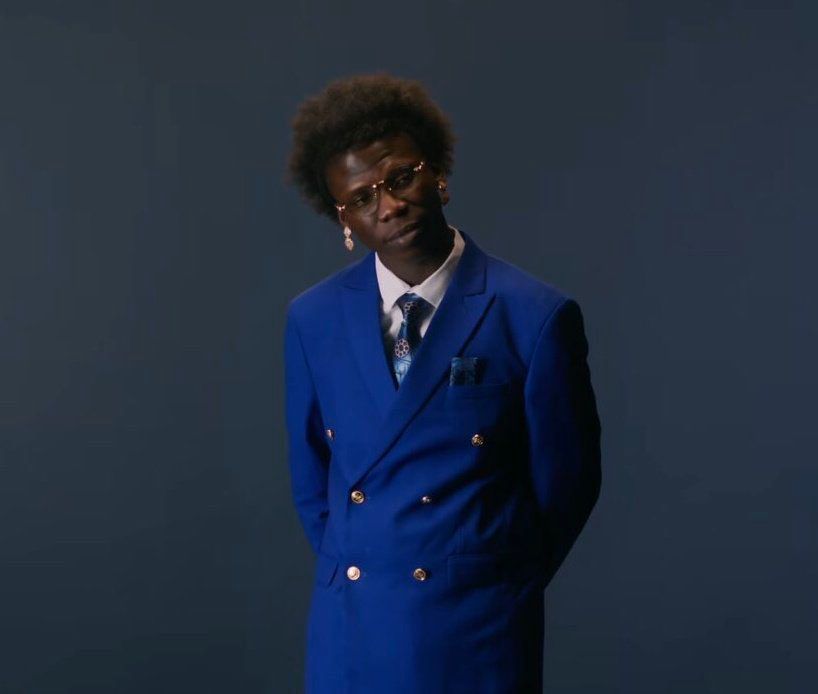If there’s a lyric that captures Seyi Vibez’s rise, it’s Jay-Z’s famous bar: "First I snatched the streets, then I snatched the charts, first I had their ear, now I have their heart."
For Seyi Vibez, that line isn’t just a quote—it’s a blueprint. By the end of 2024, any doubts about his cultural dominance were laid to rest. The Lagos-born star closed the year as TurnTable’s Most Streamed Artiste with 642 million on-demand streams, finishing as the platform’s overall No. 2 artist—second only to the inescapable Asake (No. 1 Artiste in 2022, 2023 and 2024).
Yet, 2024 also marked a curious shift for the artist. After a relentless three-year run of back-to-back releases—and an amicable split from Dapper Music—Seyi Vibez fell silent. For seven months, there were no new projects, no surprise guest verses. Just the echoes of his catalog, which only seemed to grow louder in his absence.
The break, rather than dulling his momentum, amplified it. Fans revisited his gritty chronicles of survival and celebration, reaffirming his many monikers: the Ghetto Preacher, the Voice of the Streets, the Party’s Non-Negotiable Soundtrack (as the chant goes: “No Seyi, No Vibez”). His silence became a strategy, transforming into a masterclass in anticipation. In December, Seyi Vibez’s “Flaky” transcended from a hit song to a cultural phenomenon. A viral DJ cut of the track became the unofficial anthem of Detty December (the award for official No. 1 song in December went to Davido’s “Funds” with ODUMODUBLVCK & Chike, pulsing through the heart of Nigeria’s festive season. From the sunlit beaches of Lagos to the neon-lit clubs of Abuja, the hypnotic chant—*“Oblee, Oblee, Oblee”—*echoed through crowded dance floors and street parties.
Whether at exclusive rooftop soirées or in the thick of surging festival crowds, the track united revelers from every corner of the globe. As Nigerians returned home and visitors flocked in for the holidays, “Oblee” became more than just a song—it became the sound of celebration, a shared language of joy, and a testament to Seyi Vibez’s unshakable grip on the culture.
When ‘Children of Africa’ arrived—without warning—on February 21, the four-track EP didn’t feel like a comeback. It felt like a coronation. Compact but potent, the project distills Seyi’s signature blend of street philosophy, spiritual reflection, and unfiltered energy into a sharp 12-minute statement.
The opener, “MARIO KART,” blends playful nostalgia with hard-won ambition. By sampling the familiar sound effects of the Nintendo classic, Seyi draws a line between childhood dreams and adult realities—a metaphor for his journey from grassroots grind to mainstream glory.
Collaborations, a rarity in his discography, take center stage on “MACHO”—a fiery link-up with Memphis rapper NLE Choppa. The track fuses Southern hip-hop bravado with Yoruba-inflected swagger, bridging continents while staying true to Seyi’s roots.
“SHAOLIN” taps into Mara street rhythms, blending pulsing drums with a hypnotic melody. It’s an anthem built for the raves—proof that Seyi hasn’t abandoned the turn-up, even while expanding his sound.
But it’s the closer, “HAPPY SONG,” that lingers. Over a stripped-back, gospel-tinged production, Seyi’s gravelly vocals join a children’s chorus as they chant:
"H-A-P-P-Y, we are happy / Happy people, we are happy."
It’s a bittersweet reflection on joy and resilience—a reminder that, beneath the bravado, his music has always been about empathy for the everyday struggle.
Of course, critics could argue that Seyi Vibez is leaning on a formula. But as ‘Children of Africa’ proves, it’s a formula that works—and one that his fans aren’t tired of yet.
The numbers tell the story: the EP amassed 19.4 million on-demand streams in its debut week, a staggering figure for a surprise drop with zero promotional rollout. The release reignites speculation—if a four-track EP can shake the charts, what will happen when Seyi Vibez delivers a full-length album? Could he challenge the record set by Davido’s ‘Timeless’ (50.4M), still Nigeria’s biggest debut-week release to date?
For now, Seyi Vibez seems uninterested in industry benchmarks. His power lies not in chasing accolades but in his unshakable connection to the streets—and the streets are still listening.
‘Children of Africa’ isn’t just another release. It’s a statement of purpose—and a reminder that Seyi’s voice is more than music. It’s a movement. And as the title suggests, this movement isn’t his alone. It belongs to every hustler, dreamer, and survivor who sees themselves in his songs.
The streets claimed the charts long ago. Now, with Seyi Vibez at the helm, they’re rewriting the rules.
